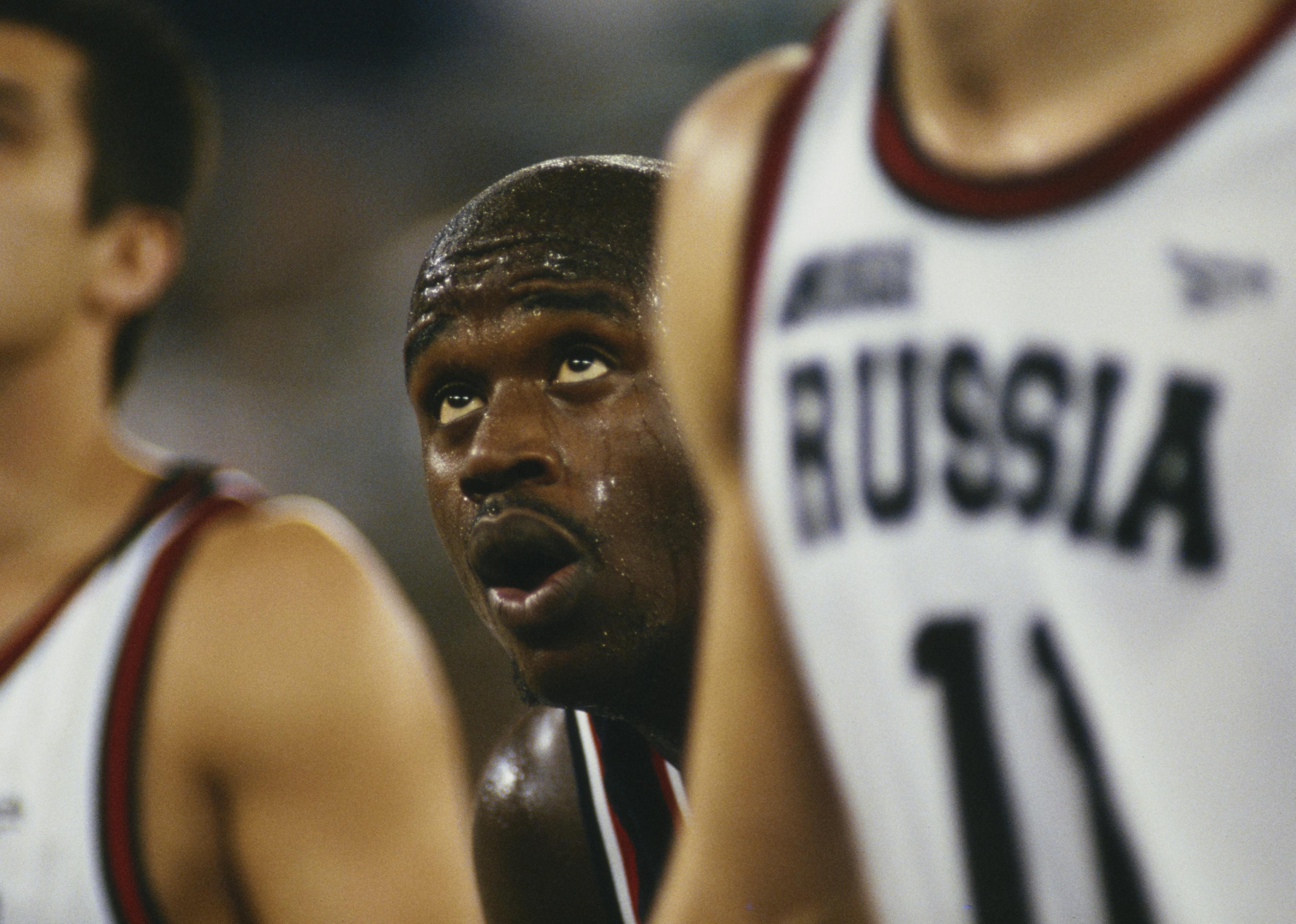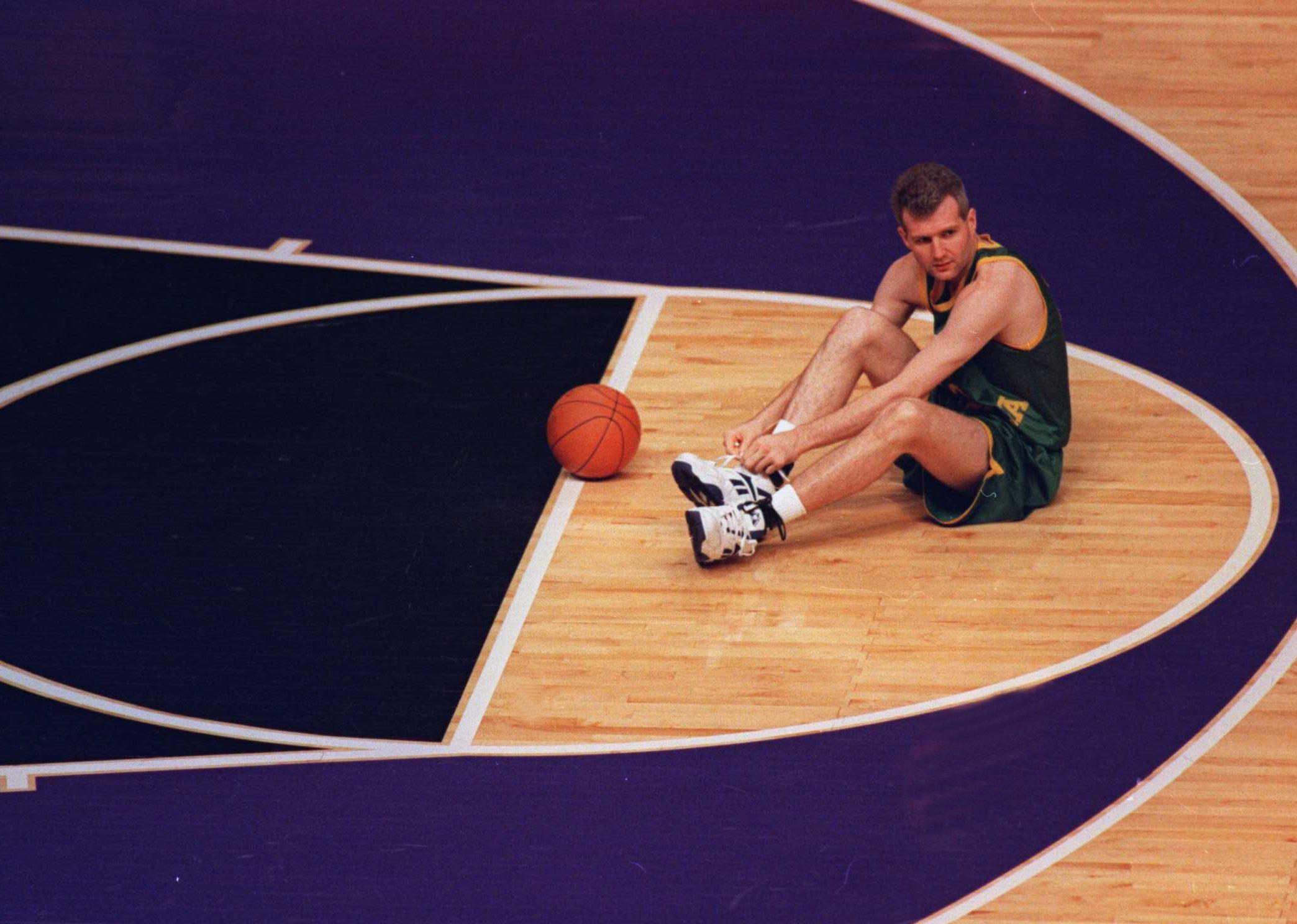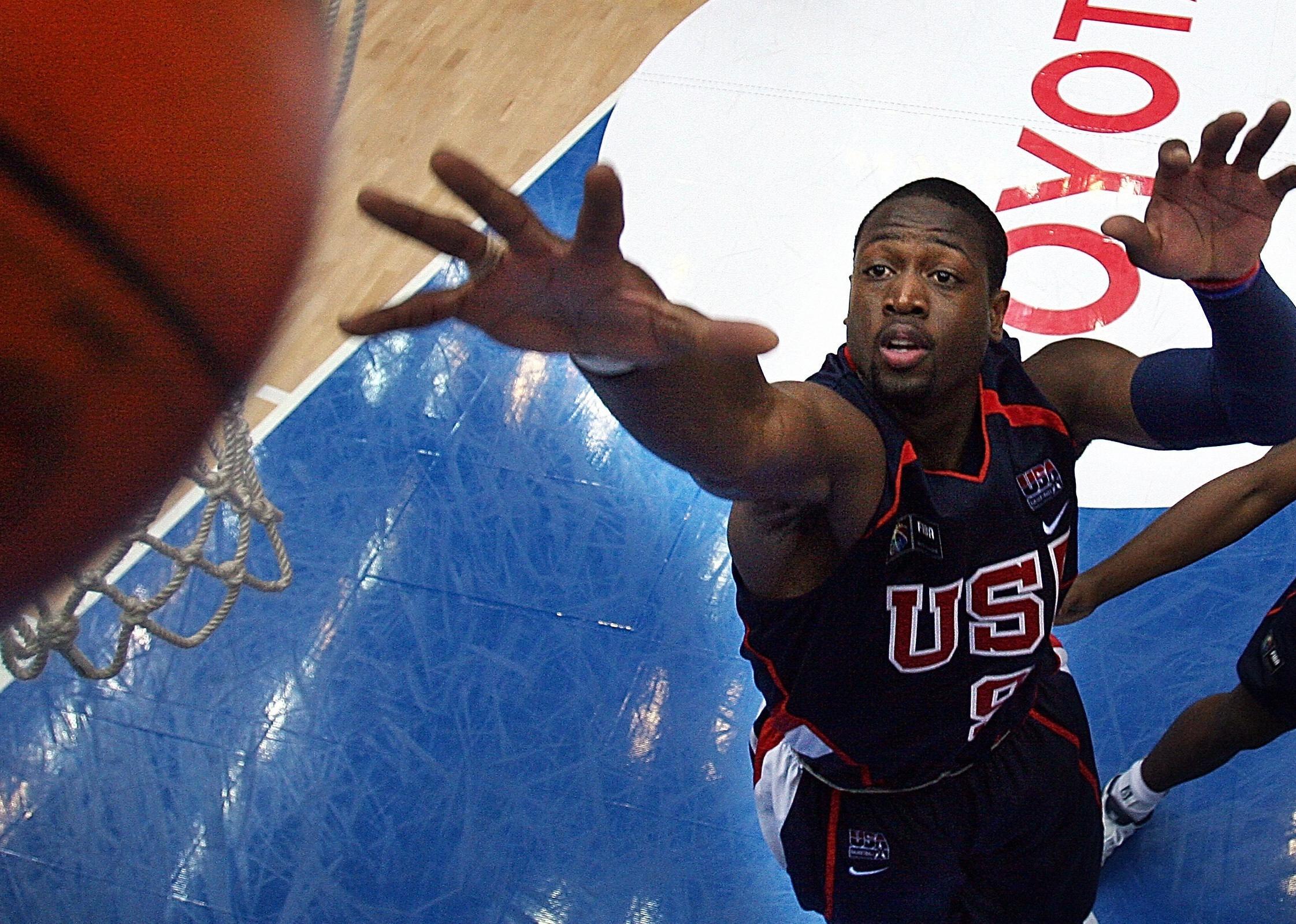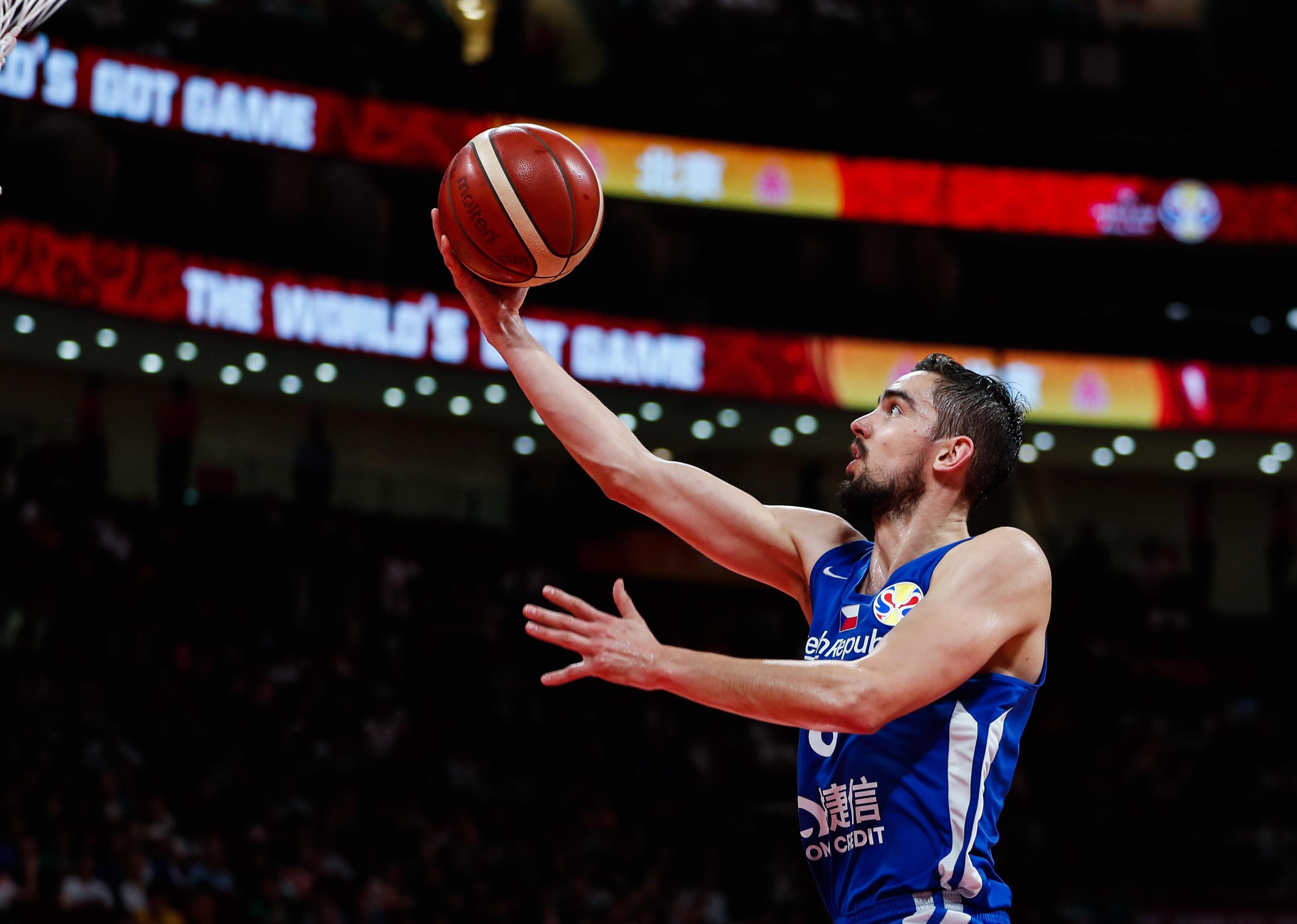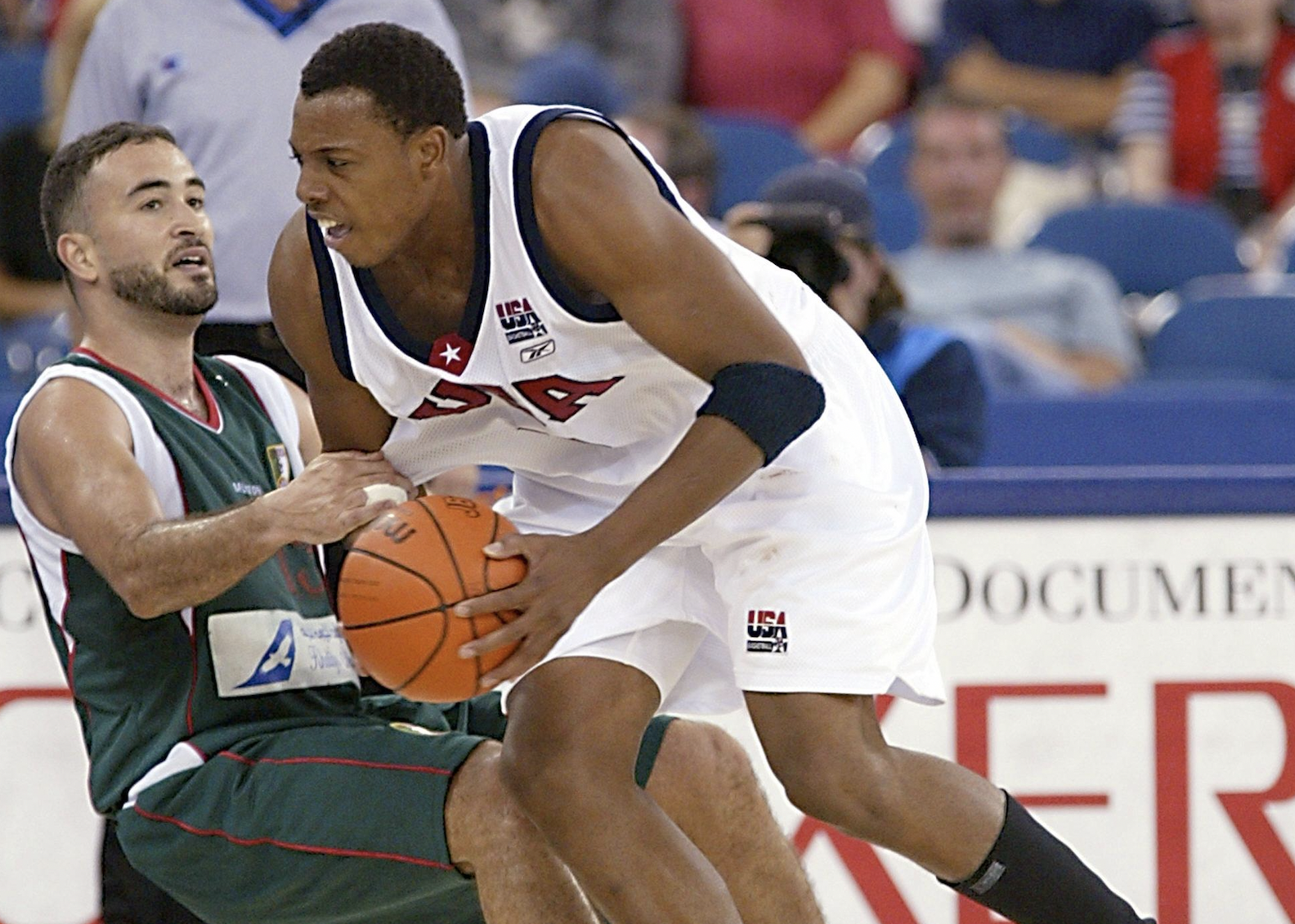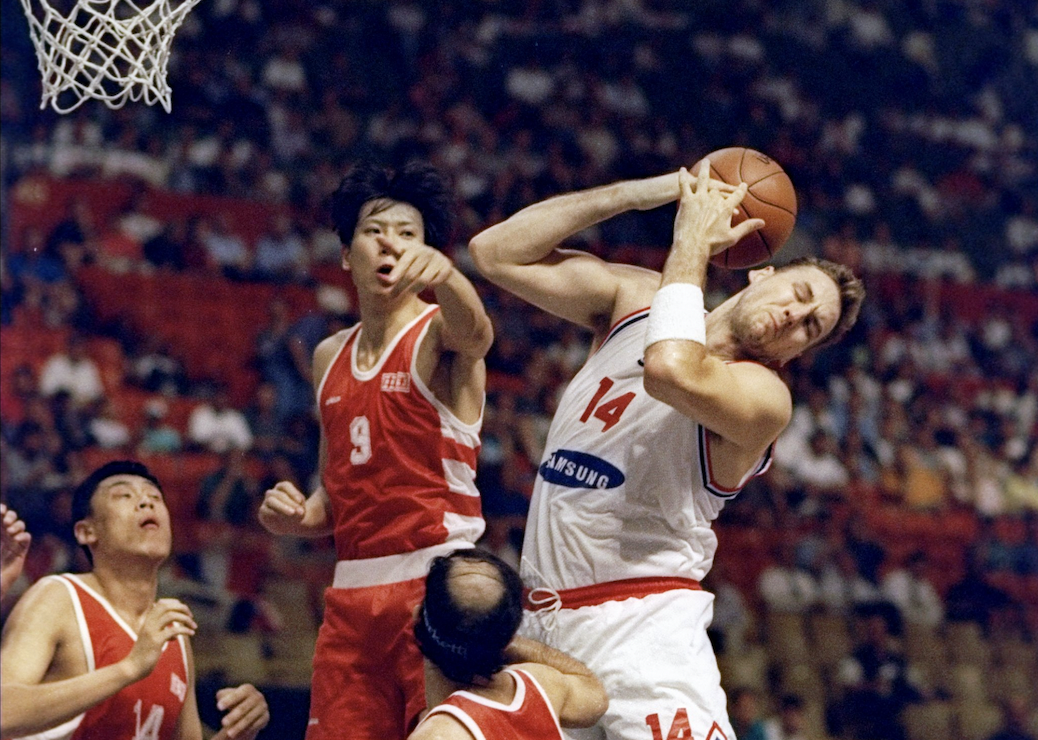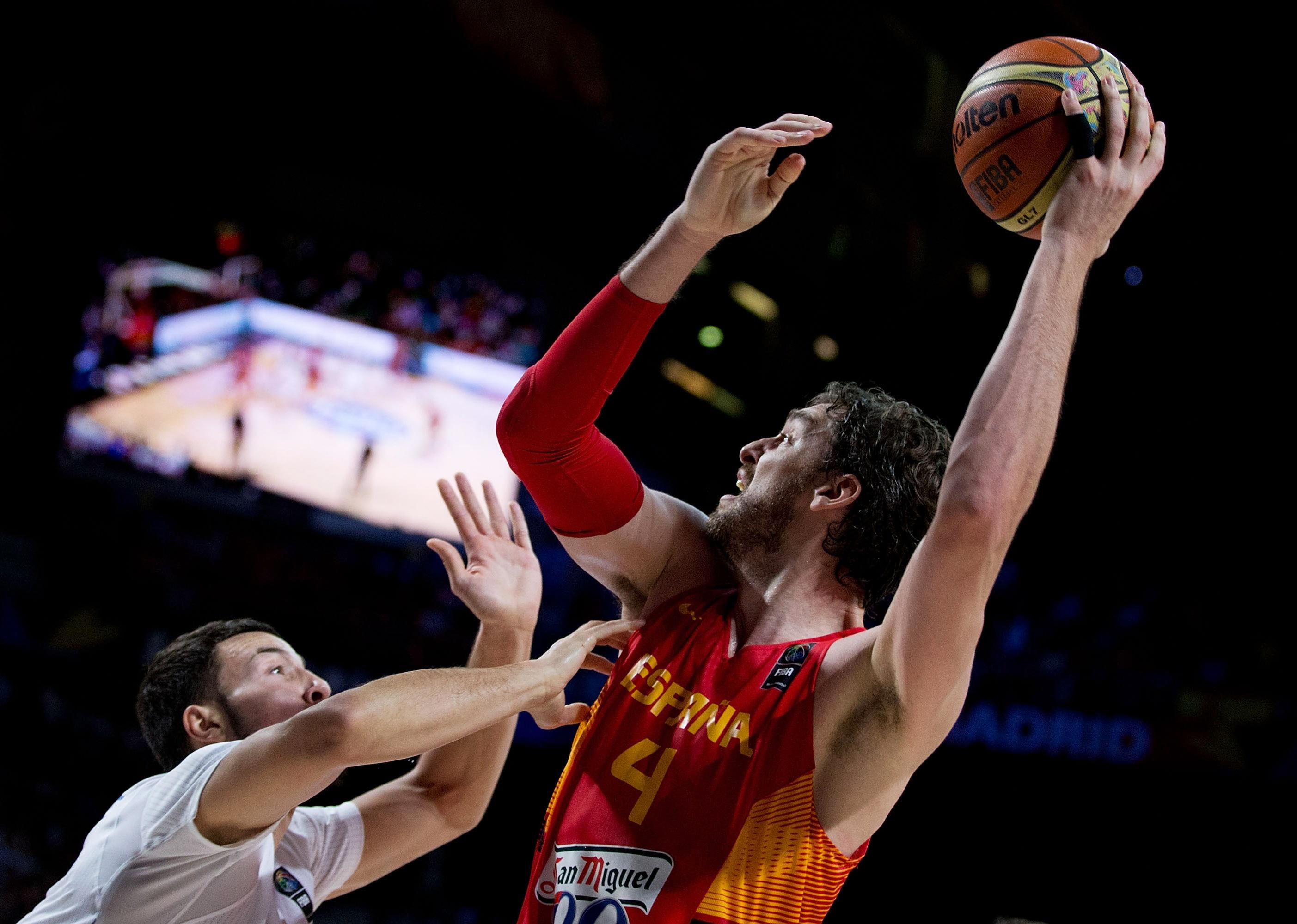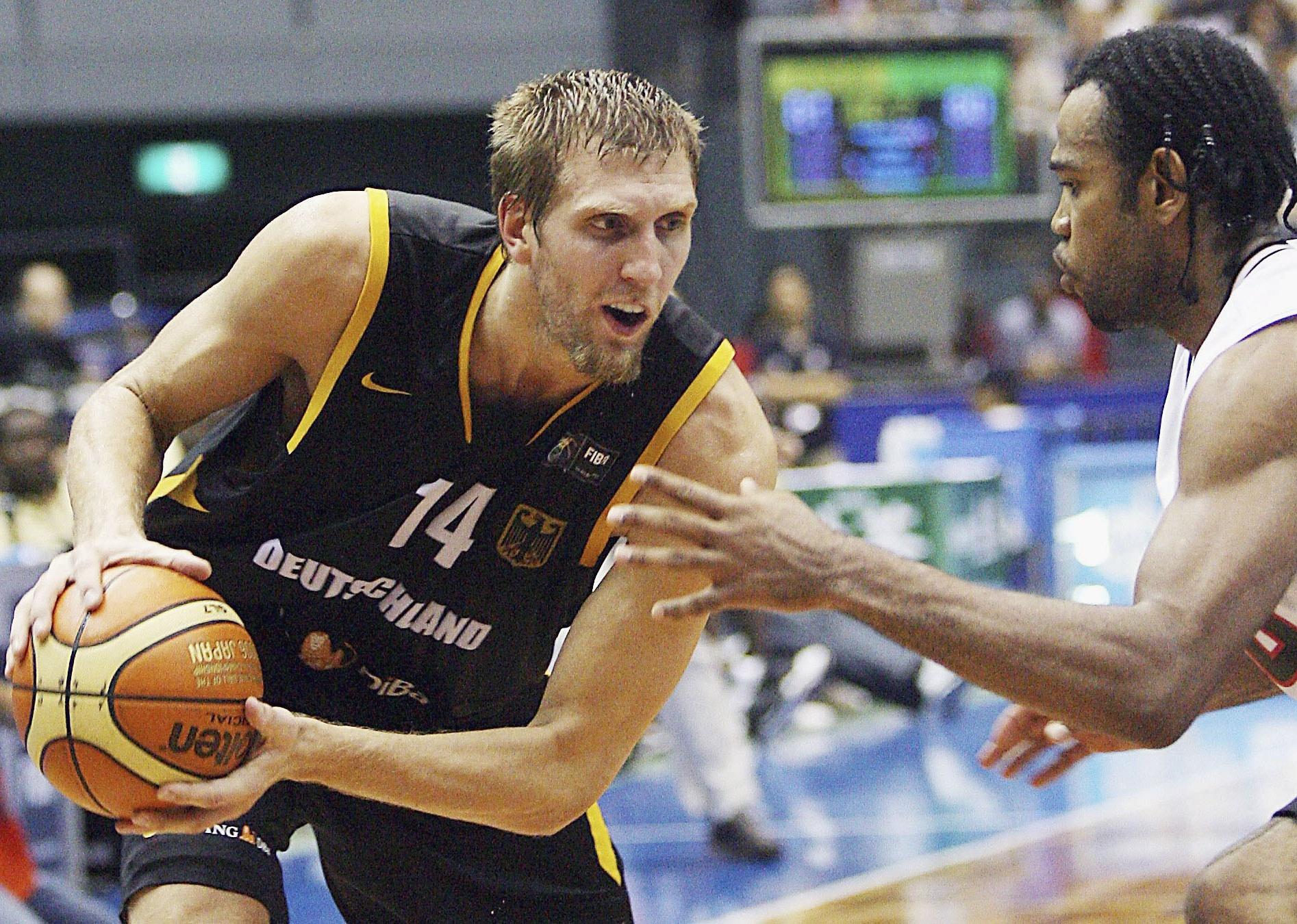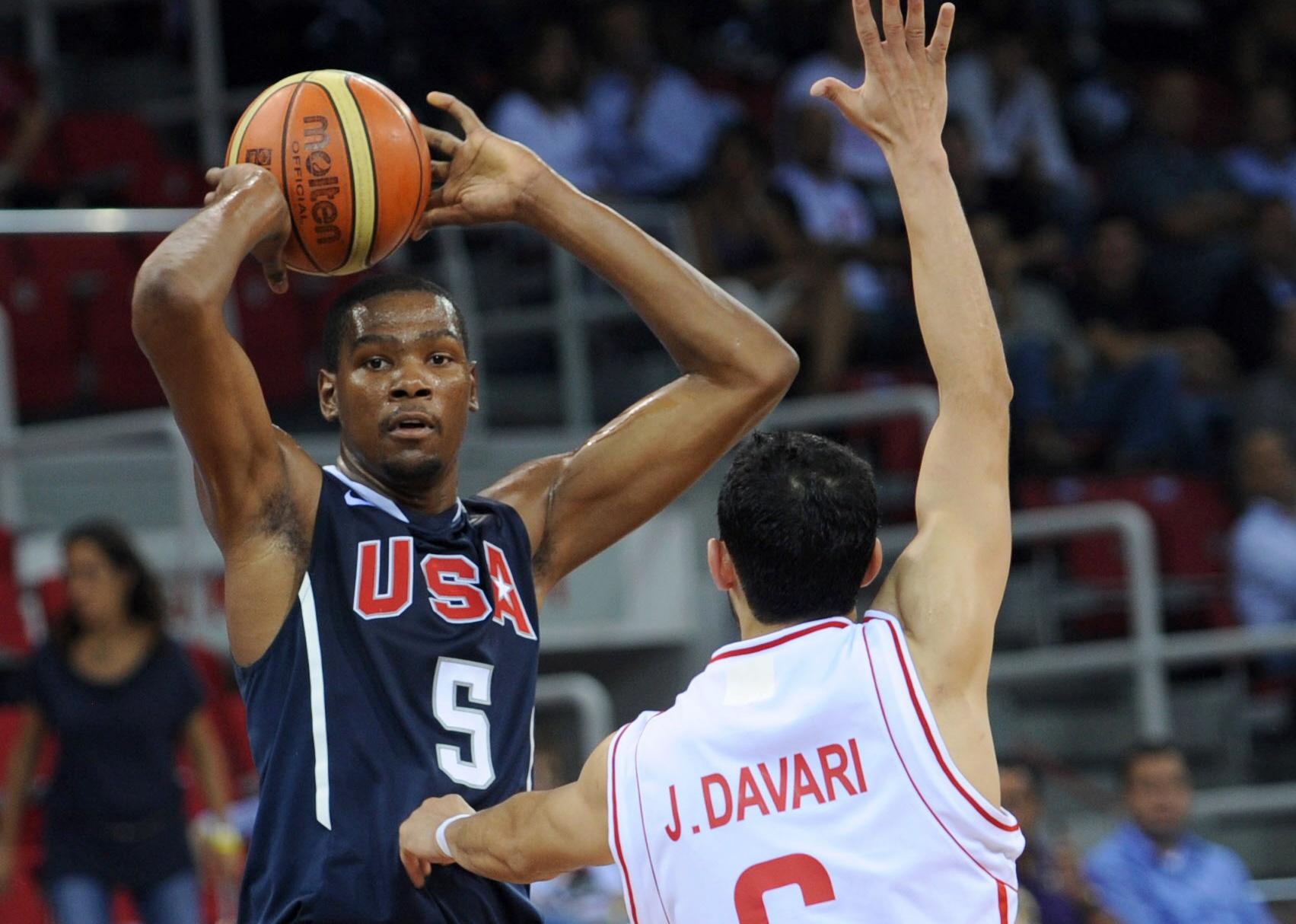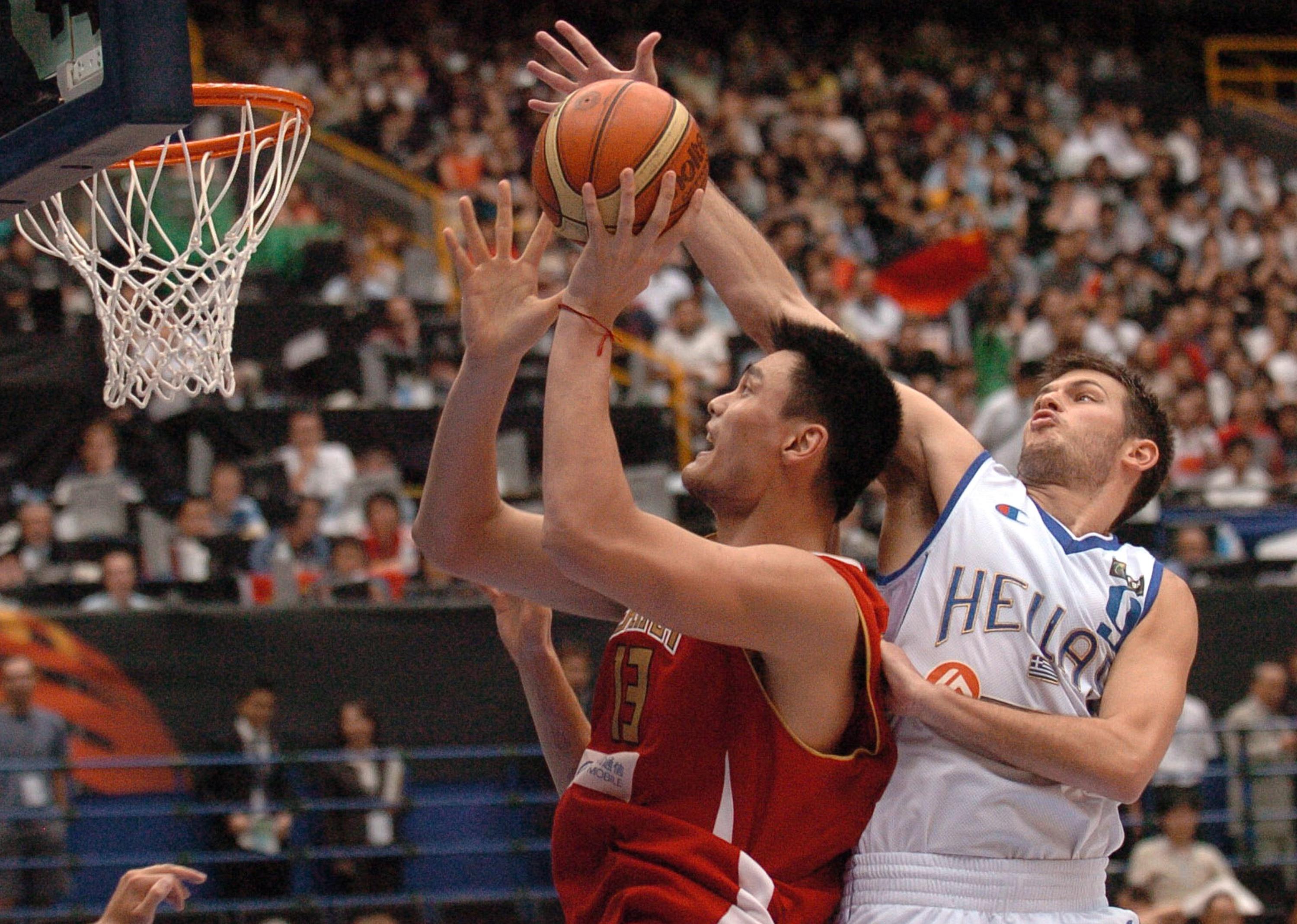The 10 best NBA player performances in the FIBA World Cup
Published 3:30 pm Monday, November 20, 2023
The 10 best NBA player performances in the FIBA World Cup
Top NBA stars have long been reluctant to embrace international competition. Players often prefer to prioritize skill development and recovery after a grueling 82-game season instead of even more organized basketball. Given that the U.S. produces the majority of the best basketball players, the general perception is that the United States should dominate every competition even if many of the top players decline to participate.
Such overconfidence has cost the U.S. in the past, most notably when they took home bronze medals in the 2004 Olympics and 2006 FIBA World Championship. The following 2008 U.S. Olympic team was then dubbed the “Redeem Team,” which was lined with the best American talent to ensure their highest chance of winning. The camaraderie among NBA foes gives them a rare opportunity to bond and learn from one another.
With the Olympics drawing more attention, the FIBA World Cup has become a great international showcase for budding young stars in the NBA. Players like LeBron James, Kevin Durant, and Stephen Curry played in FIBA basketball early on in their careers. Given the recent growth of top European NBA players, the FIBA World Cup is as competitive as ever right now.
In honor of the 2023 FIBA World Cup, The Game Day compiled a ranking of the 10 best NBA player performances in the FIBA World Cup using data from RealGM. Only FIBA competitions after 1991, when NBA players were allowed to participate, were considered. Rankings were determined by applying John Hollinger’s Game Score formula to each player’s tournament stats. Players who did not play more than five total games were not considered.
Keep reading to see if your favorite NBA players made the list.
![]()
Bongarts // Getty Images
#10. Shaquille O’Neal
– Tournament averages: 18.0 points, 8.5 rebounds, 14.2 game score
– Country: United States
– Year participated: 1994 (Gold medal)
Shaquille O’Neal making the list should come as no surprise. Even at 22 years old, Shaq could physically dominate anyone in front of him. Simply stopping O’Neal from getting a layup or dunk was a task few could handle, leading to NBA teams intentionally fouling him sometimes as a last recourse. Shaq wreaked havoc over the far less talented competition in international basketball. Team USA coasted to a gold medal with O’Neal winning tournament MVP and leading the NBA in scoring the following season.
Doug Pensinger // Getty Images
#9. Andrew Gaze
– Tournament averages: 20.4 points, 2.9 assists, 14.4 game score
– Country: Australia
– Years participated: 1994 (5th place), 1998 (9th place)
Andrew Gaze had the shortest NBA career of any player on the list—playing a total of 128 minutes—but his international basketball career is very well known. Gaze led the Australian national team for over a decade and is currently the third-leading scorer in FIBA World Cup history. Gaze’s best outing was the 1994 tournament, where he guided Team Australia to fifth place while leading the tournament in scoring and free throws.
TOSHIFUMI KITAMURA/AF // Getty Images
#8. Dwyane Wade
– Tournament averages: 19.3 points, 2.8 assists, 14.5 game score
– Country: United States
– Year participated: 2006 (Bronze medal)
Dwyane Wade joined Team USA for the 2006 FIBA World Cup just weeks after leading the Miami Heat to their first championship. Wade picked up right after his dominant play in the NBA Finals, scoring 20 or more points in three of his first four games. Despite getting limited opportunities to play alongside players like LeBron James, Carmelo Anthony, and Chris Paul, Wade established himself as a reliable and efficient player. Team USA ultimately suffered one of the biggest upsets in FIBA history, losing to Greece in the semifinals.
VCG/VCG // Getty Images
#7. Tomáš Satoranský
– Tournament averages: 15.5 points, 8.5 assists, 14.7 game score
– Country: Czech Republic
– Year participated: 2019 (6th place)
Tomáš Satoranský led a Czech Republic team that punched well above its weight in the 2019 FIBA World Cup. Satoranský has never been viewed as more than a role player in the NBA, but he embraced being the leader for his country’s first FIBA appearance. Satoranský took on a big scoring burden for his national team while also leading the tournament in total assists and finishing second to Dennis Schröder in assists per game at 8.5. The Czech Republic lost a competitive game in the quarterfinals to a far more talented Australian team.
JEFF HAYNES/AFP // Getty Images
#6. Paul Pierce
– Tournament averages: 19.8 points, 3.9 assists, 15.5 game score
– Country: United States
– Year participated: 2002 (6th place)
Paul Pierce showed up with a lot of confidence at the 2002 FIBA tournament. Fresh off his first All-Star and conference finals appearance, Pierce knew he was a budding young star in the league and played like it on the international stage. The Truth led the team in scoring and even went toe-to-toe with Dirk Nowitzki during pool play. Despite Pierce’s excellent play, Team USA fielded a middling roster around him and was eliminated in the quarterfinals.
Doug Pensinger // Getty Images
#5. Dino Radja
– Tournament averages: 22.4 points, 8.5 rebounds, 15.7 game score
– Country: Croatia
– Year participated: 1994 (Bronze medal)
Following Croatia’s independence, Dino Radja became the national team’s premier player for the 1994 FIBA World Cup. His size and skill made him a scoring machine who could also gobble up rebounds. Croatia’s lone defeat of the tournament came in the semifinals against Russia, where Radja and fellow teammate Toni Kukoc struggled to score. Radja finished second in scoring for the 1994 World Cup and earned All-Tournament honors.
Gonzalo Arroyo Moreno // Getty Images
#4. Pau Gasol
– Tournament averages: 20.1 points, 7.8 rebounds, 16.6 game score
– Country: Spain
– Years participated: 2002 (5th place), 2006 (Gold medal), 2014 (5th place)
Brothers Pau and Marc Gasol were the backbone of Team Spain for over a decade. Spain, in turn, was viewed as the most formidable threat to Team USA at FIBA and the Olympics during that span. The rivalry culminated in two epic championship games at the 2008 and 2012 Olympics, both of which the U.S. narrowly won. Gasol’s combination of size, strength, and skill made him a nightmare for the opposing team in any setting. His best outing was the 2006 FIBA World Championship, where he won a gold medal and tournament MVP. Gasol averaged 21.3 points while shooting 64.8% from the field over eight games, while Spain dominated in the final, defeating Greece 70-47.
Getty Images
#3. Dirk Nowitzki
– Tournament averages: 23.6 points, 8.7 rebounds, 17.1 game score
– Country: Germany
– Years participated: 2002 (Bronze medal), 2006 (8th place)
Dirk Nowitzki is undoubtedly one of the best international NBA players ever and possibly the greatest shooting big man of all time. Teams were used to defending sharp shooting guards and forwards, but Nowitzki defied all expectations with his 7-foot height, skill, and shooting ability. Especially at the international level, defenders had no chance of defending against his patented one-legged fadeaway. Nowitzki led an underdog German team to a bronze medal in 2002 while winning tournament MVP.
BULENT KILIC/AFP // Getty Images
#2. Kevin Durant
– Tournament averages: 22.8 points, 6.1 rebounds, 18.1 game score
– Country: United States
– Year participated: 2010 (Gold medal)
Kevin Durant’s all-around scoring ability is unparalleled in the NBA. Entering the 2010 FIBA World Cup, Durant had already made All-NBA First Team and led the league in scoring at just 21 years old. His shooting, skill, and fluidity while standing 6-foot-10 made people question whether he was designed in a lab to play basketball. Durant recorded one of the most dominant single tournament performances in FIBA history, winning a gold medal and tournament MVP.
Mansoor Ahmed // Getty Images
#1. Yao Ming
– Tournament averages: 22.8 points, 9.1 rebounds, 18.8 game score
– Country: China
– Years participated: 2002 (12th place), 2006 (15th place)
Yao Ming’s tragic injury luck marred possibly an all-time great NBA career, but his FIBA career still stands at the very top. Yao’s 7-foot-6-inch size combined with elite footwork and touch made him impossible to stop at times. His size advantage also gave him uncontested jump shots, better chances at rebounds, and an ability to deter any shot near the rim. Given the lack of talent around him, Yao put Team China on his shoulders and tried to will his team to victory in every game. Despite his rebounding and defensive responsibilities, Yao impressively led the 2006 FIBA tournament in scoring.
Data reporting by Karim Noorani. Story editing by Jeffrey Smith. Copy editing by Tim Bruns. Photo selection by Clarese Moller.
This story originally appeared on The Game Day and was produced and
distributed in partnership with Stacker Studio.



